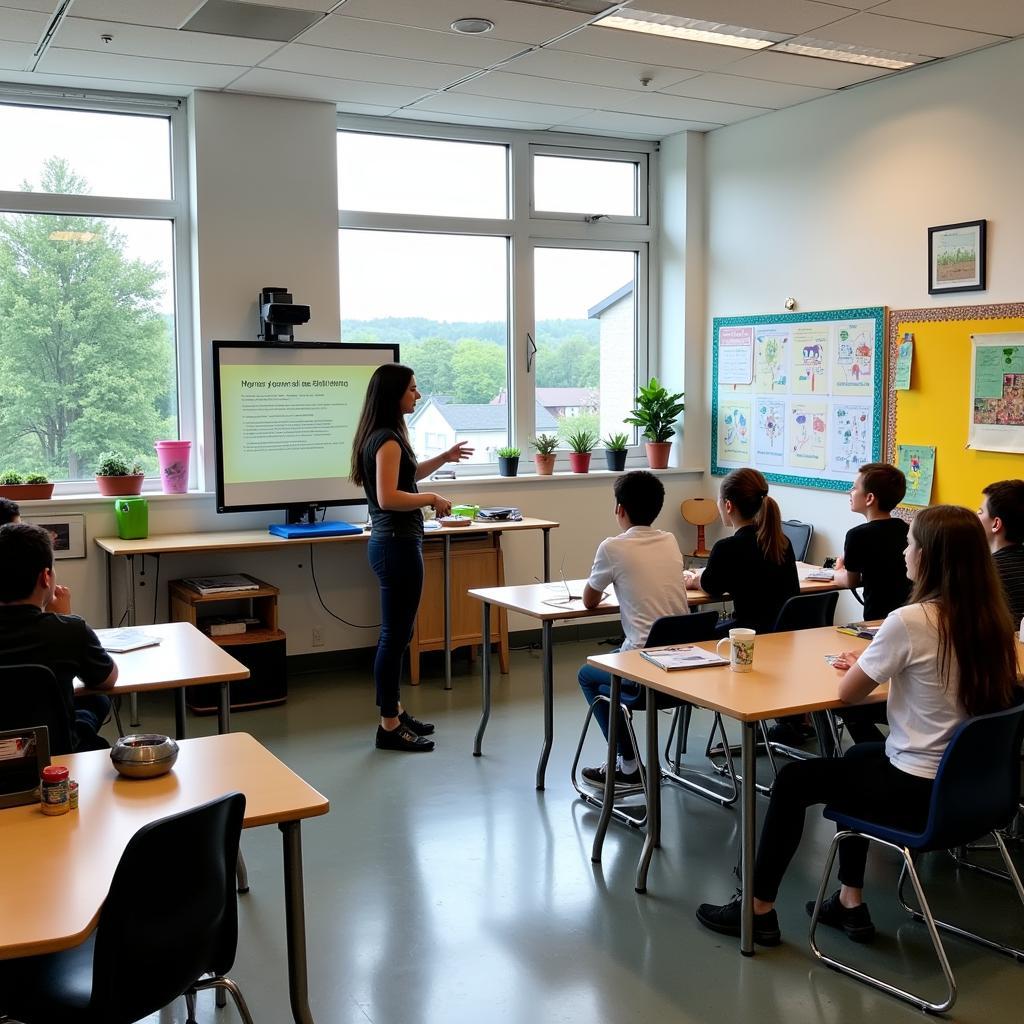Environmental education has become increasingly prevalent in IELTS Writing Task 2, particularly questions about teaching sustainable practices in schools. As promoting sustainable development through education becomes more crucial globally, this topic frequently appears in various forms, averaging 2-3 times annually in recent years.
Analysis of Common Question Types
The most common question format on this topic usually asks candidates to discuss whether schools should include environmental education and sustainable living practices in their curriculum. One such question that regularly appears is:
Some people believe that schools should teach children how to live sustainably and protect the environment. Others think this responsibility belongs to parents and the wider community. Discuss both views and give your own opinion.
Band 8-9 Model Answer
Similar to discussions about Teach climate change in schools: yes or no?, this high-scoring response demonstrates excellent argumentation and sophisticated language use:
While there is ongoing debate about who should be responsible for teaching children about environmental sustainability, I believe that both schools and communities play crucial roles in this educational process.
Those who advocate for school-based environmental education argue that educational institutions have the necessary resources and expertise to effectively teach sustainable living practices. Professional educators can systematically introduce concepts like renewable energy, waste reduction, and resource conservation through well-structured curricula. Furthermore, schools provide practical opportunities for implementing these lessons through recycling programs, energy-saving initiatives, and school gardens.
However, proponents of community-based environmental education maintain that sustainability awareness should primarily come from parents and society. They contend that sustainable behaviors are best learned through daily practice at home and within the community. Children are more likely to adopt eco-friendly habits when they observe their parents and neighbors actively engaging in sustainable practices.
In my opinion, the most effective approach is a collaborative effort between schools and communities. Educational institutions can provide the theoretical framework and structured learning experiences, while parents and community members can reinforce these lessons through practical application. This comprehensive approach ensures that children develop both the knowledge and habits necessary for sustainable living.

Band 6-7 Model Answer
Like discussions about the importance of recycling programs in schools, this response shows good control but less sophistication:
Nowadays, environmental protection is becoming more important, and people have different opinions about who should teach children about sustainable living.
Some people think schools should teach children about sustainability. Schools have trained teachers who can explain environmental issues clearly. They can also organize activities like recycling projects and energy-saving campaigns. Many schools already have environmental clubs where students learn about nature protection.
On the other hand, some believe parents and communities should teach these skills. Children spend more time at home than at school, so parents can show them how to save water, reduce waste, and use less electricity. Community groups can also organize environmental activities and cleanup events.
I think both schools and families should teach children about sustainable living. Schools can teach the basic knowledge, while families can help children practice these skills every day. When schools and communities work together, children will learn better about protecting the environment.
Key Vocabulary
- sustainability (n) /səˌsteɪnəˈbɪləti/ – the ability to continue without damaging the environment
- curriculum (n) /kəˈrɪkjələm/ – the subjects that are included in a course of study
- initiatives (n) /ɪˈnɪʃətɪvz/ – new plans or processes to achieve something
- eco-friendly (adj) /ˈiːkəʊ ˌfrendli/ – not harmful to the environment
- theoretical framework (n) /θɪəˈretɪkəl ˈfreɪmwɜːk/ – a basic structure of ideas
- collaborative (adj) /kəˈlæbərətɪv/ – involving people working together
Conclusion
The topic of sustainable education continues to be relevant in IELTS examinations. Similar questions might focus on specific aspects like role of social media in promoting sustainable lifestyles. Practice writing responses to variations such as:
- Should environmental education be mandatory in all schools?
- How can schools balance academic subjects with sustainability education?
- What role should technology play in teaching environmental awareness?
Share your practice essays in the comments section for feedback and improvement suggestions.